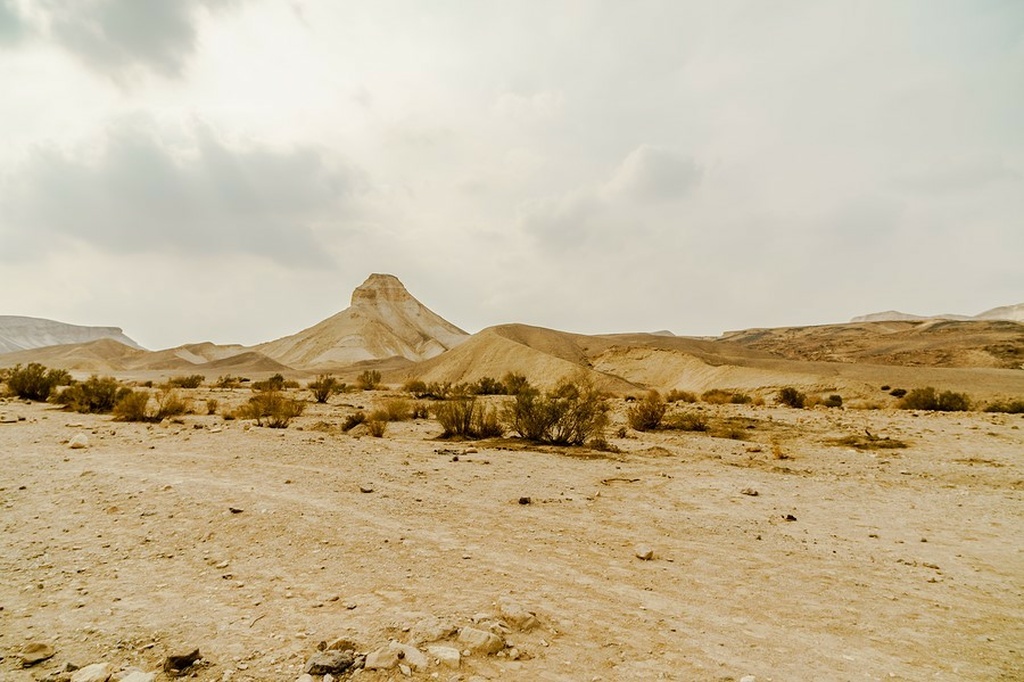
Wilderness Thinking
Godly dominion is about God using us, and that begins when we turn in our man-centered gospel for the Gospel of the Kingdom

- Chalcedon Editorial
Men seek a god they can use, not a God who uses them.[1]
Our self-interest knows no boundaries, and the Christianity that’s growing in the modern West will always have to guard itself against a man-centered gospel based upon needs, greeds, and personal well-being. Salvation is more than eternal life, and our relationship with God is more than having our needs met. We are drafted into the Lord’s army, and our focus should be on the future we are called to help create. Anything less is essentially “wilderness living.”
When the children of Israel were making continual laps around Sinai, they had a God who met their needs. Bread fell from the sky, water spewed from a rock, and pillars of fire and cloud led them from one temporary destination to another. All of this was miraculous, was it not? The nation was sustained by God’s supernatural provision for forty years.
For the average Christian, this wilderness life would certainly have an appeal which is why a gospel focused on needs, and not responsibility, sells well in the twenty-first century. However, Israel was not called to the wilderness but to Canaan, and we are not called to wilderness living but to dominion.
Growth in the Covenant
The issue is the nature of our relationship with God, and as with Israel, that relationship is defined by a covenant. What’s often missed is that both the Old and New Covenants are future oriented, so the purpose of salvation—whether from slavery in Egypt, or from the slavery to sin—is for God’s holy nation to increase in history. The temptation for Israel was to either remain in the wilderness or even return to Egypt, as Rushdoony notes:
Salvation required Israel to be future oriented. They could not rest contented with the wilderness. Our ideas of the wilderness years are governed by our knowledge of what Arabia is now, and they are thus unrealistic. It was once a forested land with many streams, under-populated, and well able to contain Israel on the march. Life was not too unpleasant; there was grazing for all their herds. To remain content with the wilderness was no doubt a real temptation to some, even as a return to Egypt was to others. The covenant Lord, however, required that they look ahead to the Promised Land, and to growth in the covenant law and life in that land.[2]
To be future-oriented while living in ease requires a people to be steeped in the true nature of our covenant relationship with God. As Rushdoony noted at the top, “Men seek a god they can use, not a God who uses them,” and the Christian who understands God’s covenant knows that his calling is to be used by God for dominion, but this is a tough sell in today’s compromised Christianity:
The covenant God requires a full and uncompromising allegiance. The churches have too often preferred a bastard culture, one deeply in debt to humanism and its world, with a smattering of the Bible, and much larded with sentimental pietism.[3]
The “Power” Found in Dominion
If you’ve watched any Christian television over the past few decades, you’ve seen the emphasis is typically upon a God we can use, and the content is usually replete with an overemphasis upon miracles. What’s interesting is that such messages are often based upon the miracles seen during Israel’s wilderness sojourn, which means we are essentially equipping the church for wilderness living. This would help to explain their reluctance to dominion.
Once Israel reached Canaan, the manna ceased, the pillars of fire and cloud disappeared, and there would no longer be water out of a rock. The “promised land” would only become such as the result of their work in terms of God’s law, and it would not be the result of a direct miracle intervention as in the wilderness. Instead of using God to meet their needs, God would now be using them to establish His rule in Canaan.
Israel’s wilderness journey is held forth as an example to the church (1 Cor. 10:11) but not so that we can wander through history sustained only by miracle provisions. As God later said through Moses, “But thou shalt remember the Lord thy God: for it is he that giveth thee power to get wealth, that he may establish his covenant which he sware unto thy fathers, as it is this day” (Deut. 8:18). This is the miracle of Canaan: it is God giving power to get wealth, i.e., covenantal prosperity, which means the power is seen in His working through us not towards us.
Godly dominion is about God using us, and that begins when we turn in our man-centered gospel for the Gospel of the Kingdom:
And Jesus came and spake unto them, saying, All power is given unto me in heaven and in earth. Go ye therefore, and teach all nations, baptizing them in the name of the Father, and of the Son, and of the Holy Ghost: teaching them to observe all things whatsoever I have commanded you: and, lo, I am with you always, even unto the end of the world. Amen. (Matt. 28:18-20)
[1] R. J. Rushdoony, Thy Kingdom Come: Studies in Daniel and Revelation (Vallecito, CA: Ross House Books, 2001), p. 8.
[2] R. J. Rushdoony, Commentaries on the Pentateuch: Numbers (Vallecito, CA: Ross House Books, 2006), p. 9.
[3] R. J. Rushdoony, Commentaries on the Pentateuch: Deuteronomy (Vallecito, CA: Ross House Books, 2008), p. 4.

- Chalcedon Editorial